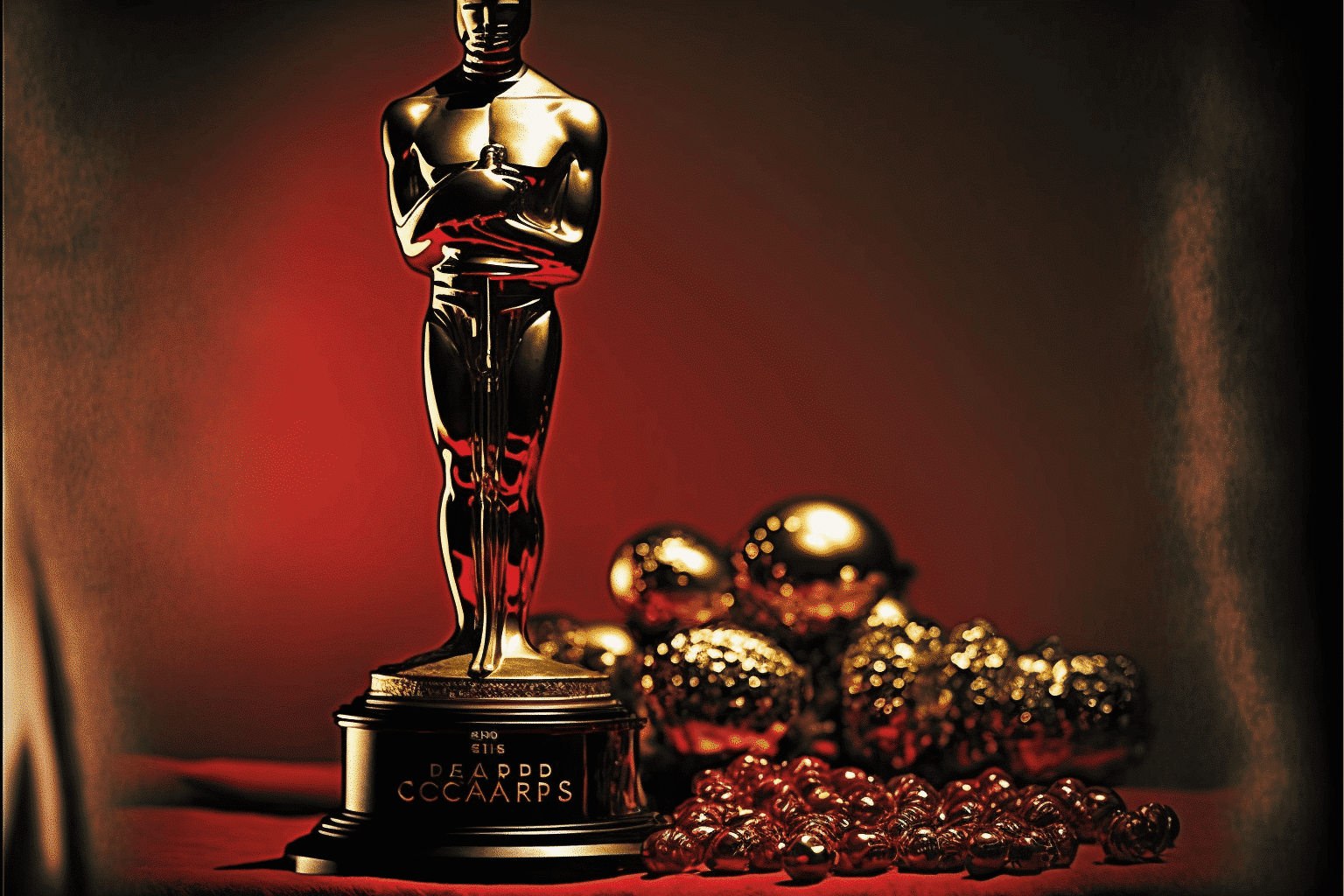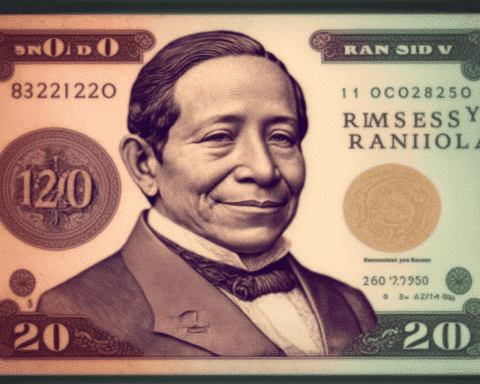The Academy Awards, also known as the Oscars, are a set of awards given annually for outstanding achievements in the film industry by the Academy of Motion Picture Arts and Sciences (AMPAS).
The awards are presented in various categories, including Best Picture, Best Director, and acting categories for lead and supporting actors and actresses.
The Oscars are considered the most prestigious awards in the film industry and are presented during a ceremony that is broadcasted live on television.
The first Academy Awards ceremony was held in 1929.
The Categories
The Oscars, or the Academy Awards, recognize and award outstanding achievements in various categories of the film industry.
The awards are presented in 24 categories, including:
- Best Picture: awarded to the production company of the winning film
- Best Director: awarded to the director of the winning film
- Best Actor and Best Actress: awarded to the lead actors in a film
- Best Supporting Actor and Best Supporting Actress: awarded to actors in supporting roles in a film
- Best Original Screenplay and Best Adapted Screenplay: awarded to the writers of the winning film
- Best Cinematography, Best Film Editing, Best Production Design, Best Costume Design, Best Makeup and Hair, Best Sound and Best Visual Effects
- Best Original Score and Best Original Song: awarded to the composers and songwriters of the winning film
- International Feature Film and Best Documentary Feature
The Oscars also have a few honorary awards like the Jean Hersholt Humanitarian Award, the Honorary Award and the Irving G. Thalberg Memorial Award.
It’s prestigiousness
The Academy Awards, or the Oscars, are considered one of the most prestigious awards in the film industry for several reasons:
- History: The Oscars have been awarded annually since 1929 and have become an important part of Hollywood’s history and culture.
- Recognition: Winning an Oscar is a huge honour and signifies that a film, actor, or crew member has reached the pinnacle of their profession.
- Media coverage: The Oscars are widely covered by the media, both in the United States and internationally, which brings a lot of attention to the films and people who nominated and won awards.
- Industry impact: Winning an Oscar can greatly boost the career of nominees and winners, increase the visibility and box office of the films, and provide a financial and prestige boost for production companies.
- Audience interest: The Oscars ceremony is widely watched by a global audience, making it one of the most-watched live events on television.
- Academy membership: The Academy of Motion Picture Arts and Sciences is made up of a diverse group of industry professionals, including actors, directors, producers, and writers, which lends credibility and prestige to the awards.
Overall, the Oscars are a significant event in the film industry and have a big impact on the careers of those who win and are nominated and the audiences that watch and enjoy films.
Where they take place
The Academy Awards, or the Oscars, are traditionally held at the Dolby Theatre in Hollywood, California. The Dolby Theatre is located in the heart of Hollywood and is home to the Academy Awards ceremony since 2002.
The Dolby Theatre is chosen as the location for the Oscars for several reasons.
One is its proximity to other major entertainment industry venues, such as the TCL Chinese Theatre and the Hollywood Walk of Fame, which helps create an atmosphere of glamour and excitement surrounding the event.
Additionally, the Dolby Theatre has the necessary infrastructure and facilities to accommodate a large number of guests, presenters, and performers that are part of the Oscars ceremony.
The theatre also has state-of-the-art technical facilities that can support the event’s live broadcast.
Another important factor taken into consideration when choosing the location for the Oscars is the capacity of the theatre.
The Dolby Theater has a seating capacity of 3,400, which is considered ideal for the Oscars ceremony, as it allows for a balance between having a large audience while still maintaining an intimate and exclusive atmosphere.
Finally, the Dolby Theatre is a historical venue with a grand and elegant design that makes it a perfect fit for the prestigious and grandeur event of the Oscars.
Nominations and Wins
The nominations and awards for the Academy Awards, or the Oscars, are determined by the Academy of Motion Picture Arts and Sciences (AMPAS) voting members.
The voting process is designed to recognize outstanding achievements in various categories of the film industry.
The specific criteria and requirements for nominations and awards vary by category but generally include the following factors:
- Quality of the film or performance: The nominees and winners are chosen based on the overall quality and merit of the film or performance.
- Technical proficiency: The nominees and winners are often chosen based on their technical proficiency in their respective fields, such as direction, cinematography, and sound design.
- Originality: The nominees and winners are often chosen based on the level of originality and creativity in the film or performance.
- Popularity: The nominees and winners are chosen based on the popularity of the film or performance among the Academy members.
- Impact: The nominees and winners are chosen based on the impact of the film or performance on the industry and society at large.
The voting process is a multi-step process that starts with nominations, in which all eligible members of the Academy can submit their choices in each category.
Then, the nominees are announced, and the final voting begins.
The final voting is done by the members of the Academy who are part of the respective branches (actors, directors, writers, etc.), and the nominees with the most votes win the award.
It’s worth mentioning that the Academy’s voting membership is a diverse group of industry professionals, including actors, directors, producers, and writers, which lends credibility and prestige to the awards.
This Year
The 2023 Oscars nominations were announced by the Academy on Tuesday morning, bringing an end to months of anticipation and speculation.
The lead-up to the big reveal included film festivals, red-carpet events, and expert predictions.
“Everything Everywhere All at Once,” a sci-fi adventure film, received the most nominations at the 95th Academy Awards with 11 nods.
It was closely followed by “All Quiet on the Western Front,” a World War I epic, and “The Banshees of Inisherin,” a dark comedy about friendship set against the Irish civil war, both of which received 9 nominations.
All three films mentioned, “Everything Everywhere All at Once,” “All Quiet on the Western Front,” and “The Banshees of Inisherin,” are nominated for the coveted Best Picture award, along with a selection of other commercially successful films such as “Avatar: The Way of Water,” “Top Gun: Maverick,” and “Elvis,” a musical biopic that gained popularity last summer.
Other notable nominees for Best Picture include “The Fabelmans,” a semi-autobiographical film by Steven Spielberg, “Tár,” a drama about an abusive conductor, “Women Talking,” a film that explores the lives of the residents of a restrictive religious community, and “Triangle of Sadness,” a satire about the wealthy elite set partly on a mega-yacht.
“Triangle of Sadness,” a controversial film, received several nominations at the Academy Awards on Tuesday morning, including for its screenplay and for the direction of Ruben Östlund, the Swedish filmmaker behind the satire.
Östlund will be competing for the Best Director award against notable directors such as Steven Spielberg, Todd Field (“Tár”), Martin McDonagh (“The Banshees of Inisherin”), and the directing duo of Daniel Kwan and Daniel Scheinert (“Everything Everywhere All at Once”).
Notably, this category is dominated entirely by men, which is a departure from the last two years, where the Best Director award was won by women Jane Campion (“The Power of the Dog”) and Chloe Zhao (“Nomadland”).
There were some expectations that Sarah Polley, the director of “Women Talking,” would receive a nomination for Best Director.
The Academy of Motion Picture Arts & Sciences, the organization behind the Oscars, announced the nominations at a challenging time for the Academy and the film industry.
The ratings for the Oscars have been in decline in recent years, which has affected the revenue generated from the broadcast’s licensing fees, a major source of income for the Academy.
Additionally, adult-oriented films such as “The Fabelmans,” “Tár,” and “The Banshees of Inisherin” have faced difficulties at the box office during the pandemic.
To make matters worse, streaming services, which have been a source of support for the industry during the decline in theatrical revenues, are also shifting their priorities.
For example, Netflix has announced plans to keep content spending relatively stable while focusing on increasing profits.
This year’s Oscar season has featured several comeback stories, highlighting the resilience and perseverance of actors and filmmakers.
Ke Huy Quan, a former child actor known for his role in “Indiana Jones and the Temple of Doom,” received a Best Supporting Actor nomination for his performance in “Everything Everywhere All at Once.”
This is a remarkable achievement, as a few years ago, Quan had given up on acting, believing that his career in front of the camera was over.
Similarly, Brendan Fraser, a former action star whose career was affected by health problems and personal struggles, has made a powerful comeback as a character actor with his transformative role in “The Whale.” He was also nominated for Best Actor.
While Fraser and Quan will likely spend the morning receiving congratulations for their nominations, many other actors and filmmakers will not have much to celebrate.
This is because several critically acclaimed performances, such as Viola Davis in “The Woman King,” Brad Pitt in “Babylon,” and Danielle Deadwyler in “Till,” did not make the final list of nominees.
Jimmy Kimmel will be returning to host the Oscars for the third time, having previously hosted in 2017 and 2018.
The previous year, the Oscars had gone back to a host format with Amy Schumer, Wanda Sykes and Regina Hall after two years without a host.
The 95th Oscars ceremony will take place on Sunday, March 12, 2023, at the Dolby Theatre in Hollywood and will be broadcast live on ABC.
The Nominations
Best Picture
“All Quiet on the Western Front,” Malte Grunert, Producer
“Avatar: The Way of Water,” James Cameron and Jon Landau, Producers
“The Banshees of Inisherin,” Graham Broadbent, Pete Czernin and Martin McDonagh, Producers
“Elvis,” Baz Luhrmann, Catherine Martin, Gail Berman, Patrick McCormick and Schuyler Weiss, Producers
“Everything Everywhere All at Once,” Daniel Kwan, Daniel Scheinert and Jonathan Wang, Producers
“The Fabelmans,” Kristie Macosko Krieger, Steven Spielberg and Tony Kushner, Producers
“Tár,” Todd Field, Alexandra Milchan and Scott Lambert, Producers
“Top Gun: Maverick,” Tom Cruise, Christopher McQuarrie, David Ellison and Jerry Bruckheimer, Producers
“Triangle of Sadness,” Erik Hemmendorff and Philippe Bober, Producers
“Women Talking,” Dede Gardner, Jeremy Kleiner and Frances McDormand, Producers
Best Director
Martin McDonagh (“The Banshees of Inisherin”)
Daniel Kwan, Daniel Scheinert (“Everything Everywhere All at Once”)
Steven Spielberg (“The Fabelmans”)
Todd Field (“Tár”)
Ruben Östlund (“Triangle of Sadness”)
Best Lead Actor
Austin Butler (“Elvis”)
Colin Farrell (“The Banshees of Inisherin”)
Brendan Fraser (“The Whale”)
Paul Mescal (“Aftersun”)
Bill Nighy (“Living”)
Best Lead Actress
Cate Blanchett (“Tár”)
Ana de Armas (“Blonde”)
Andrea Riseborough (“To Leslie”)
Michelle Williams (“The Fabelmans”)
Michelle Yeoh (“Everything Everywhere All at Once”)
Best Supporting Actor
Brendan Gleeson (“The Banshees of Inisherin”)
Brian Tyree Henry (“Causeway”)
Judd Hirsch (“The Fabelmans”)
Barry Keoghan (“The Banshees of Inisherin”)
Ke Huy Quan (“Everything Everywhere All at Once”)
Best Supporting Actress
Angela Bassett (“Black Panther: Wakanda Forever”)
Hong Chau (“The Whale”)
Kerry Condon (“The Banshees of Inisherin”)
Jamie Lee Curtis (“Everything Everywhere All at Once”)
Stephanie Hsu (“Everything Everywhere All at Once”)
Best Adapted Screenplay
“All Quiet on the Western Front,” Screenplay by Edward Berger, Lesley Paterson & Ian Stokell
“Glass Onion: A Knives Out Mystery,” Written by Rian Johnson
“Living,” Written by Kazuo Ishiguro
“Top Gun: Maverick,” Screenplay by Ehren Kruger and Eric Warren Singer and Christopher McQuarrie; Story by Peter Craig and Justin Marks
“Women Talking,” Screenplay by Sarah Polley
Best Original Screenplay
“The Banshees of Inisherin,” Written by Martin McDonagh
“Everything Everywhere All at Once,” Written by Daniel Kwan & Daniel Scheinert
“The Fabelmans,” Written by Steven Spielberg & Tony Kushner
“Tár,” Written by Todd Field
“Triangle of Sadness,” Written by Ruben Östlund
Best Cinematography
“All Quiet on the Western Front,” James Friend
“Bardo, False Chronicle of a Handful of Truths,” Darius Khondji
“Elvis,” Mandy Walker
“Empire of Light,” Roger Deakins
“Tár,” Florian Hoffmeister
Best Documentary Feature Film
“All That Breathes,” Shaunak Sen, Aman Mann and Teddy Leifer
“All the Beauty and the Bloodshed,” Laura Poitras, Howard Gertler, John Lyons, Nan Goldin and Yoni Golijov
“Fire of Love,” Sara Dosa, Shane Boris and Ina Fichman
“A House Made of Splinters,” Simon Lereng Wilmont and Monica Hellström
“Navalny,” Daniel Roher, Odessa Rae, Diane Becker, Melanie Miller and Shane Boris
Best Documentary Short Film
“The Elephant Whisperers,” Kartiki Gonsalves and Guneet Monga
“Haulout,” Evgenia Arbugaeva and Maxim Arbugaev
“How Do You Measure a Year?” Jay Rosenblatt
“The Martha Mitchell Effect,” Anne Alvergue and Beth Levison
“Stranger at the Gate,” Joshua Seftel and Conall Jones
Best Film Editing
“The Banshees of Inisherin,” Mikkel E.G. Nielsen
“Elvis,” Matt Villa and Jonathan Redmond
“Everything Everywhere All at Once,” Paul Rogers
“Tár,” Monika Willi
“Top Gun: Maverick,” Eddie Hamilton
Best International Feature Film
“All Quiet on the Western Front” (Germany)
“Argentina, 1985” (Argentina)
“Close” (Belgium)
“EO” (Poland)
“The Quiet Girl” (Ireland)
Best Original Song
“Applause” from “Tell It Like a Woman,” Music and Lyric by Diane Warren
“Hold My Hand” from “Top Gun: Maverick,” Music and Lyrics by Lady Gaga and BloodPop
“Lift Me Up” from “Black Panther: Wakanda Forever,” Music by Tems, Rihanna, Ryan Coogler and Ludwig Goransson; Lyrics by Tems and Ryan Coogler
“Naatu Naatu” from “RRR,” Music by M.M. Keeravaani; Lyric by Chandrabose
“This Is a Life” from “Everything Everywhere All at Once,” Music by Ryan Lott, David Byrne and Mitski; Lyrics by Ryan Lott and David Byrne
Best Production Design
“All Quiet on the Western Front,” Production Design: Christian M. Goldbeck; Set Decoration: Ernestine Hipper
“Avatar: The Way of Water,” Production Design: Dylan Cole and Ben Procter; Set Decoration: Vanessa Cole
“Babylon,” Production Design: Florencia Martin; Set Decoration: Anthony Carlino
“Elvis,” Production Design: Catherine Martin and Karen Murphy; Set Decoration: Bev Dunn
“The Fabelmans,” Production Design: Rick Carter; Set Decoration: Karen O’Hara
Best Visual Effects
“All Quiet on the Western Front,” Frank Petzold, Viktor Müller, Markus Frank and Kamil Jafar
“Avatar: The Way of Water,” Joe Letteri, Richard Baneham, Eric Saindon and Daniel Barrett
“The Batman,” Dan Lemmon, Russell Earl, Anders Langlands and Dominic Tuohy
“Black Panther: Wakanda Forever,” Geoffrey Baumann, Craig Hammack, R. Christopher White and Dan Sudick
“Top Gun: Maverick,” Ryan Tudhope, Seth Hill, Bryan Litson and Scott R. Fisher
Best Animated Feature Film
“Guillermo del Toro’s Pinocchio,” Guillermo del Toro, Mark Gustafson, Gary Ungar and Alex Bulkley
“Marcel the Shell With Shoes On,” Dean Fleischer Camp, Elisabeth Holm, Andrew Goldman, Caroline Kaplan and Paul Mezey
“Puss in Boots: The Last Wish,” Joel Crawford and Mark Swift
“The Sea Beast,” Chris Williams and Jed Schlanger
“Turning Red,” Domee Shi and Lindsey Collins
Best Animated Short Film
“The Boy, the Mole, the Fox and the Horse,” Charlie Mackesy and Matthew Freud
“The Flying Sailor,” Amanda Forbis and Wendy Tilby
“Ice Merchants,” João Gonzalez and Bruno Caetano
“My Year of Dicks,” Sara Gunnarsdóttir and Pamela Ribon
“An Ostrich Told Me the World Is Fake and I Think I Believe It,” Lachlan Pendragon
Best Costume Design
“Babylon,” Mary Zophres
“Black Panther: Wakanda Forever,” Ruth Carter
“Elvis,” Catherine Martin
“Everything Everywhere All at Once,” Shirley Kurata
“Mrs. Harris Goes to Paris,” Jenny Beavan
Best Live Action Short
“An Irish Goodbye,” Tom Berkeley and Ross White
“Ivalu,” Anders Walter and Rebecca Pruzan
“Le Pupille,” Alice Rohrwacher and Alfonso Cuarón
“Night Ride,” Eirik Tveiten and Gaute Lid Larssen
“The Red Suitcase,” Cyrus Neshvad
Best Makeup and Hairstyling
“All Quiet on the Western Front,” Heike Merker and Linda Eisenhamerová
“The Batman,” Naomi Donne, Mike Marino and Mike Fontaine
“Black Panther: Wakanda Forever,” Camille Friend and Joel Harlow
“Elvis,” Mark Coulier, Jason Baird and Aldo Signoretti
“The Whale,” Adrien Morot, Judy Chin and Anne Marie Bradley
Best Original Score
“All Quiet on the Western Front,” Volker Bertelmann
“Babylon,” Justin Hurwitz
“The Banshees of Inisherin,” Carter Burwell
“Everything Everywhere All at Once,” Son Lux
“The Fabelmans,” John Williams
Best Sound
“All Quiet on the Western Front,” Viktor Prášil, Frank Kruse, Markus Stemler, Lars Ginzel and Stefan Korte
“Avatar: The Way of Water,” Julian Howarth, Gwendolyn Yates Whittle, Dick Bernstein, Christopher Boyes, Gary Summers and Michael Hedges
“The Batman,” Stuart Wilson, William Files, Douglas Murray and Andy Nelson
“Elvis,” David Lee, Wayne Pashley, Andy Nelson and Michael Keller
“Top Gun: Maverick,” Mark Weingarten, James H. Mather, Al Nelson, Chris Burdon and Mark Taylor




